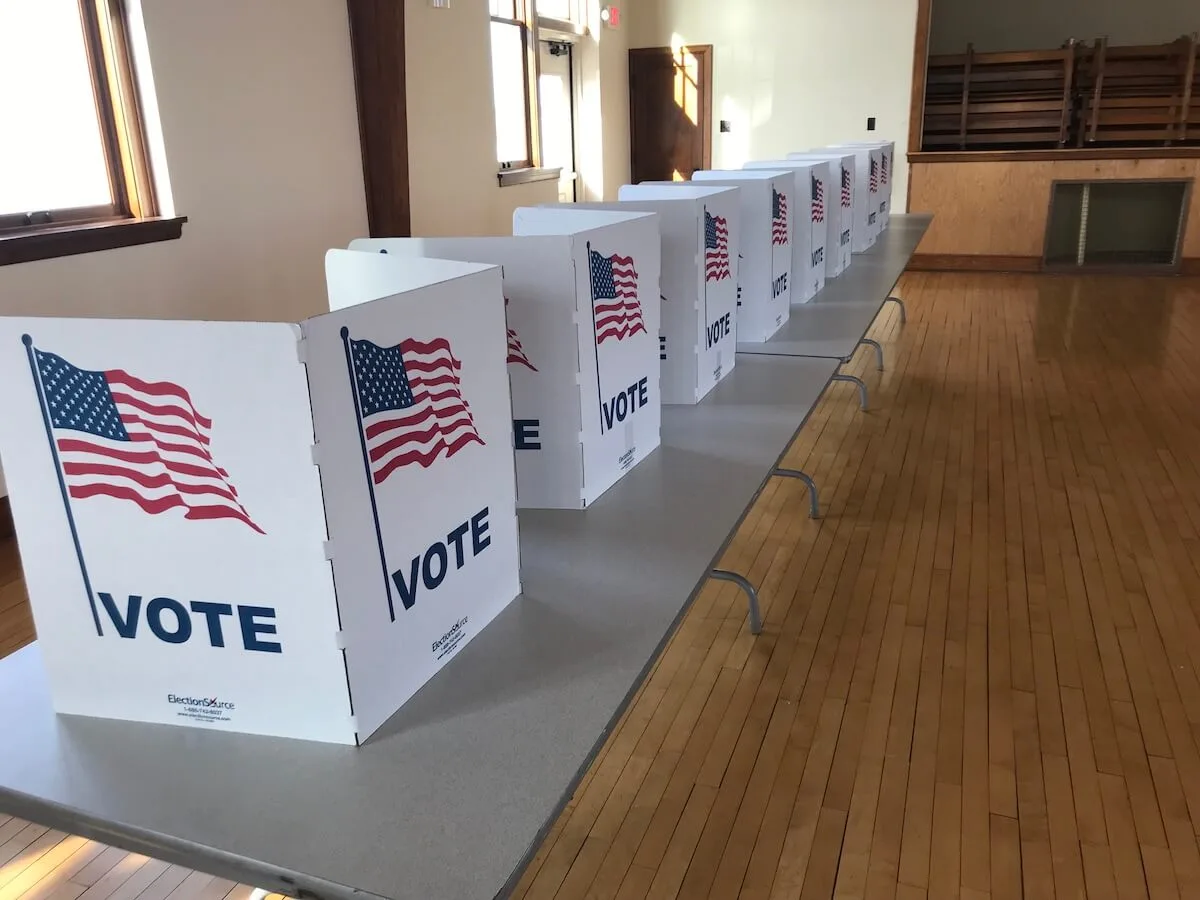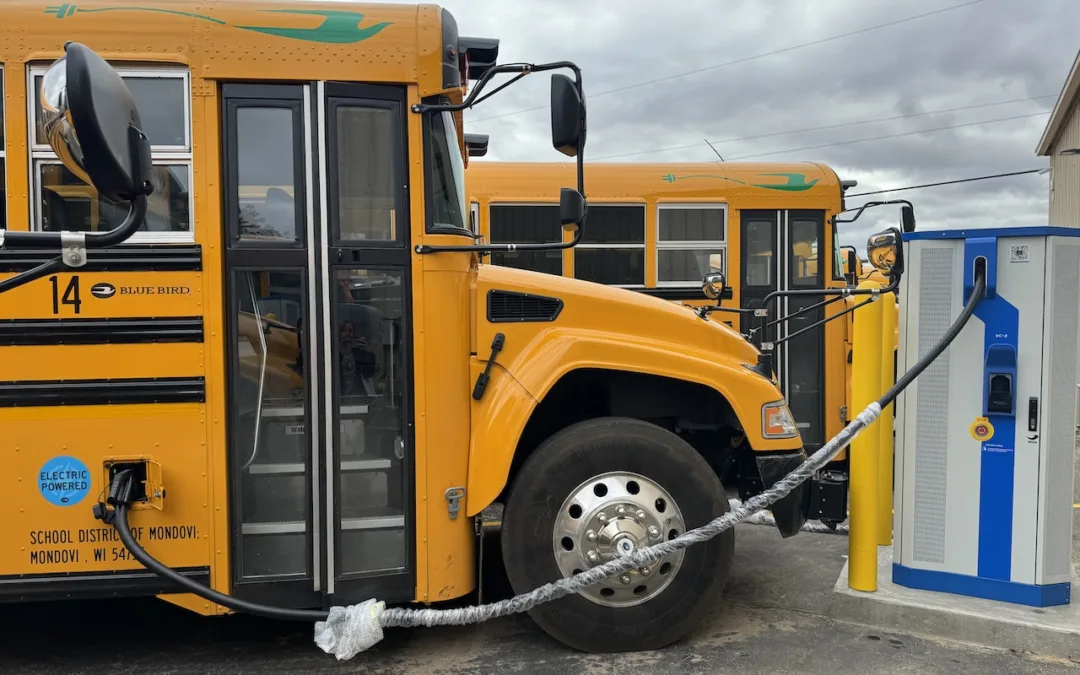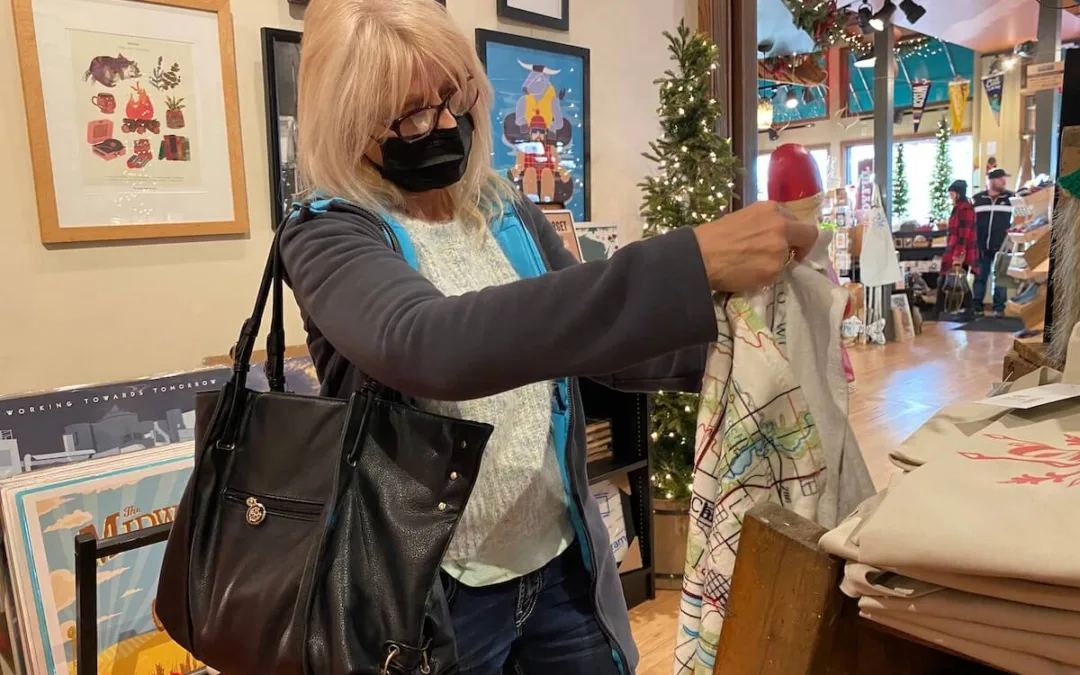
#image_title
#image_title
Clerks, voters, even a lawsuit all seek more ways to make voting easier, faster, safer
Neil Albrecht is doing everything he can to make sure April 7, 2020, remains a unique day in Wisconsin history.
That was the day Albrecht, the executive director of the Milwaukee Elections Commission, saw a city of 600,000 squeeze its voters into just five polling places amid the global coronavirus pandemic. There are typically 182 polling places open in the city for elections. Voters waited for hours in lines that stretched multiple blocks.
“I would never want to repeat what occurred in April,” Albrecht said. “We are 100 percent committed.”
Now as the August primaries and November general election approach, changes are being considered at all levels of government to ensure everyone can vote safely, and that there are enough poll workers. A lawsuit has been filed by voters and advocacy groups, the Wisconsin Elections Commission is set to take up recommendations on Wednesday to forward to the Legislature, clerks are planning for the upcoming elections, and some cities have already acted on their own.
“We’ll certainly need a much more cohesive plan from all players of election administration in this state,” Albrecht said. “That could require, definitely, needing support again from the National Guard, it could require funding from the state or the federal CARES Act dollars.”
The lawsuit, filed in federal court in Madison, was brought by Disability Rights Wisconsin, Black Leaders Organizing for Communities (BLOC), and three women who said they were prevented from voting or faced significant obstacles to voting in the April 7 election. It targets the Wisconsin Elections Commission, which did not take action to help delay the election, even after it became clear that it would be a potential health risk to hold in-person voting as coronavirus spread throughout the state.
“I don’t want it to seem like we’re doing something accusatory. It’s just that it was a mess,” said Kit Kerschensteiner, legal and advocacy services director for Disability Rights Wisconsin. “I think they would agree it was a messed up election.”
The lawsuit calls for various provisions including notifying voters if their absentee ballot will not be counted, sending absentee ballot applications to all registered voters, expanding early voting, and making sure there are ballot drop boxes in communities statewide.
The lawsuit says current plans for this year’s remaining elections would violate the Voting Rights Act, the Americans with Disabilities Act, and the U.S. Constitution. Kerschensteiner said the suit also seeks improvements for accessibility for those with disabilities; the website to request an absentee ballot is not easily usable for vision-impaired individuals, she said.
Eau Claire City Clerk Carrie Riepl said Tuesday she wasn’t familiar with details of the lawsuit, but she backs any efforts to make voting easier and to ensure as many people as possible are able to cast ballots in elections, she said.
“That’s what we’re all about, having as many eligible voters vote as we can,” she said.
Given COVID-19-related health concerns about in-person voting, Riepl and other election clerks across Wisconsin were overwhelmed with absentee ballot requests for the spring election, when a record 1.16 million people voted absentee.
Processing absentee votes is expected to present challenges again for upcoming Wisconsin elections. More than 3 million state residents are expected to vote in the November presidential election, projections call for as many as 1.8 million seeking mail-in ballots.
Election clerks report already receiving a higher-than-normal number of absentee ballot requests for the August primary election. For example, Riepl said her department already has received about 5,000, a significant total given that the total number of votes cast in August primaries typically totals between 5,000 and 6,000.
Kenosha City Clerk Deb Salas said more than 9,500 residents have already requested ballots for August. In April, 14,000 voters requested absentee ballots.
“We can see that this is going to be the trend for this year, to have many, many more absentee ballots than usual,” Salas said.
Many Democrats have called for mail-in-only voting for the August primary and November general elections, but Republicans have argued against that proposal, saying it is vulnerable to fraud despite having no evidence of mischief in a system that consistently allows members of the armed services to cast ballots from overseas. Clerks in Wisconsin said mail-in voting could work if they have enough time to train additional workers and make other preparations.
But increased absentee voting alone may not be a guaranteed path to a safer election. Many across Wisconsin reported not receiving their absentee ballots in April, leaving them with the difficult choice of voting in person and risking contracting COVID-19, or giving up their vote.
According to revised state Elections Commission figures released Monday, 120,989 absentee ballots were not returned, about 15 percent of the total requested. At least a few thousand ballots got stuck in the mail or were never sent due to technical issues, and thousands more were rejected for various reasons even after being returned and counted.
Additional funding to hire more election workers to more quickly process absentee ballots could be available as part of $7.3 million in federal CARES Act money the Elections Commission received. But that process would have to happen soon enough before elections to allow for proper training of those workers, clerks said.
Clerks are taking steps to prepare for upcoming elections, but they acknowledged uncertainties regarding the role COVID-19 could play, especially if there is a surge of virus cases. They said challenges posed by the spring election will help them better prepare for this fall.
“We have more time, and we have many lessons learned from April to get us better prepared for August and November,” Albrecht said.
Politics

Eric Hovde’s company exposed workers to dangerous chemicals, OSHA reports say
A Madison-based real estate company run by Wisconsin US Senate candidate Eric Hovde settled with the Occupational Safety and Health Administration...

Plugged in: How one Wisconsin school bus driver likes his new electric bus
Electric school buses are gradually being rolled out across the state. They’re still big and yellow, but they’re not loud and don’t smell like...
Local News

Stop and smell these native Wisconsin flowers this Earth Day
Spring has sprung — and here in Wisconsin, the signs are everywhere! From warmer weather and longer days to birds returning to your backyard trees....

Your guide to the 2024 Blue Ox Music Festival in Eau Claire
Eau Claire and art go hand in hand. The city is home to a multitude of sculptures, murals, and music events — including several annual showcases,...


